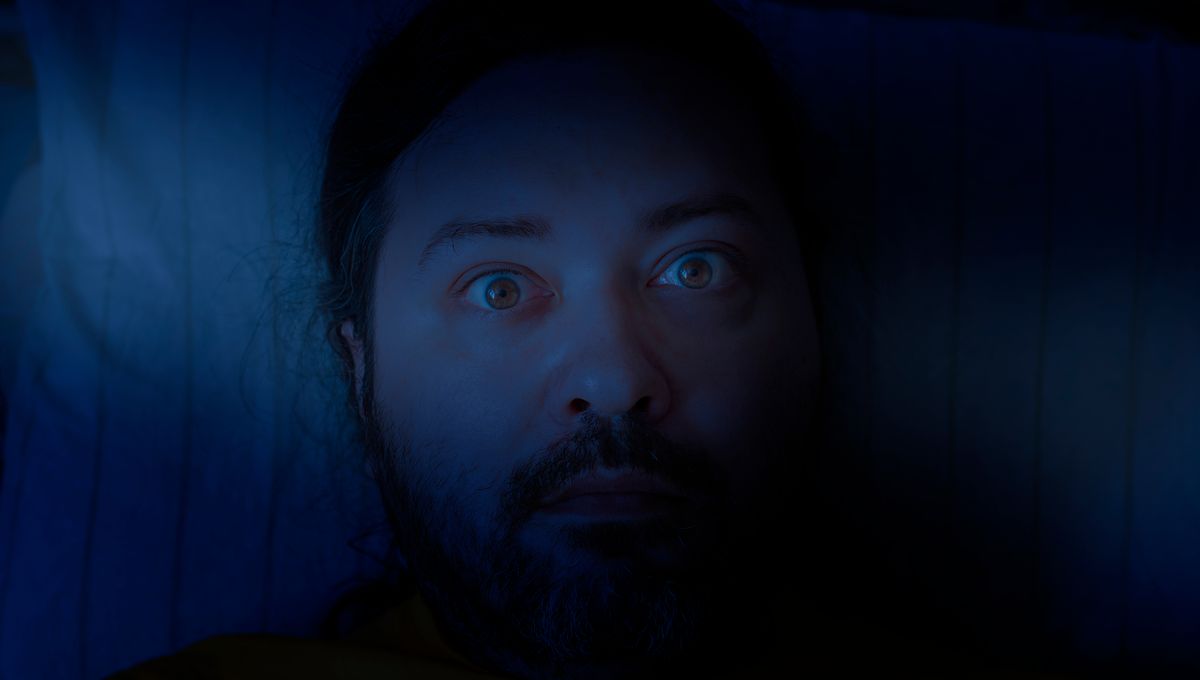
If you’ve ever shared a bed with someone with nocturnal lagophthalmos, especially if they didn’t warn you in advance, it’s possible you found the experience a tad… disconcerting. People with the condition do not fully close their eyes while they sleep, which to those who’ve only ever experienced closed-eye sleeping can be a shock to the system. It’s usually not a harmful condition, though, and it’s probably more common than you would assume.
Lagophthalmos, the inability to fully close one’s eyes, comes in several forms and different degrees of severity. The word comes from the Greek lagos, meaning “hare”, due to the observation that rabbits can sleep with their eyes open thanks to their third eyelids. Nocturnal lagophthalmos in humans specifically refers to the eyes remaining open during sleep.
Reports of the peculiar phenomenon date back a very long way. So the story goes, the ancient Chinese military leader General Zhang Fei, who lived in the late second and early third centuries BCE, managed to temporarily ward off would-be assassins due to the fact he slept with his eyes open.
It’s a condition that captures the imagination, but there’s not that much actual hard science on it. One 2019 case report on a 7-year-old patient said that it has been “rarely reported in the medical literature, with little known about the epidemiology or clinical characteristics.”
As to how common it might be, that study suggested about 5 percent of adults are affected, but estimates do vary, with some suggesting up to 20 percent of people may sleep with their eyes open. Many of them might not even know they do it.
There are various possible causes of the condition, including eye injuries, conditions causing paralysis of the facial nerves, and, more rarely, infectious diseases. Some people have anatomical factors that make it difficult for the eyes to close, such as Graves’ disease, which often causes bulging of the eyes.
Beyond the potential to freak out your friends, is nocturnal lagophthalmos a serious medical issue in itself?
How does nocturnal lagophthalmos affect the eyes?
Lagophthalmos does not typically lead to “severe complications or damage to [the] eyes”, according to Medical News Today. The biggest problem, aside from the fact it can impact your sleep, is that the eyes can quickly dry out if they spend long periods of time unprotected by the eyelid – there’s a reason why we blink so often during the day.
Dry eye disease is very common – it’s thought up to 50 percent of people could be affected to some degree. The signs include increased eye-watering – that might sound paradoxical, but lots of people with dry eyes have increased tear production – a sensation of something in your eye, and pain or irritation, especially in the morning.
It’s rare for people with dry eye disease to experience severe, lasting damage to the surface of the eye, but it is a possibility.
If you have these symptoms and suspect you might have nocturnal lagophthalmos, or dry eyes in general, it’s worth talking to an eye doctor. They may signpost you to further testing to investigate possible underlying causes, and can recommend treatments that might help keep the eye surface lubricated and protected. Common options include eye drops and ointments, and taping the eyelids closed overnight.
The content of this article is not intended to be a substitute for professional medical advice, diagnosis, or treatment. Always seek the advice of qualified health providers with questions you may have regarding medical conditions.
Source Link: Sleeping With Your Eyes Open Is More Common Than You Might Think